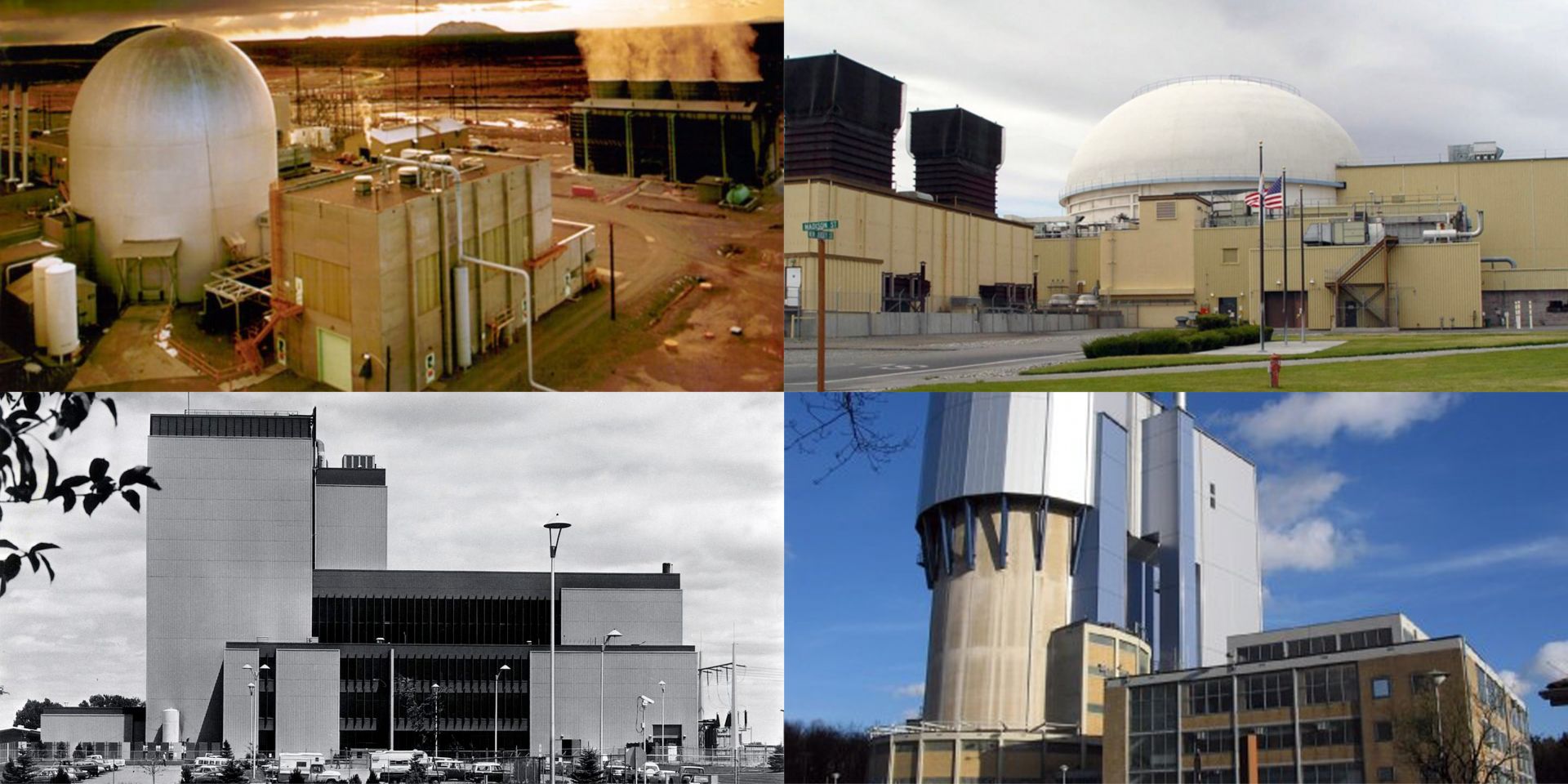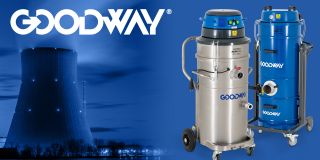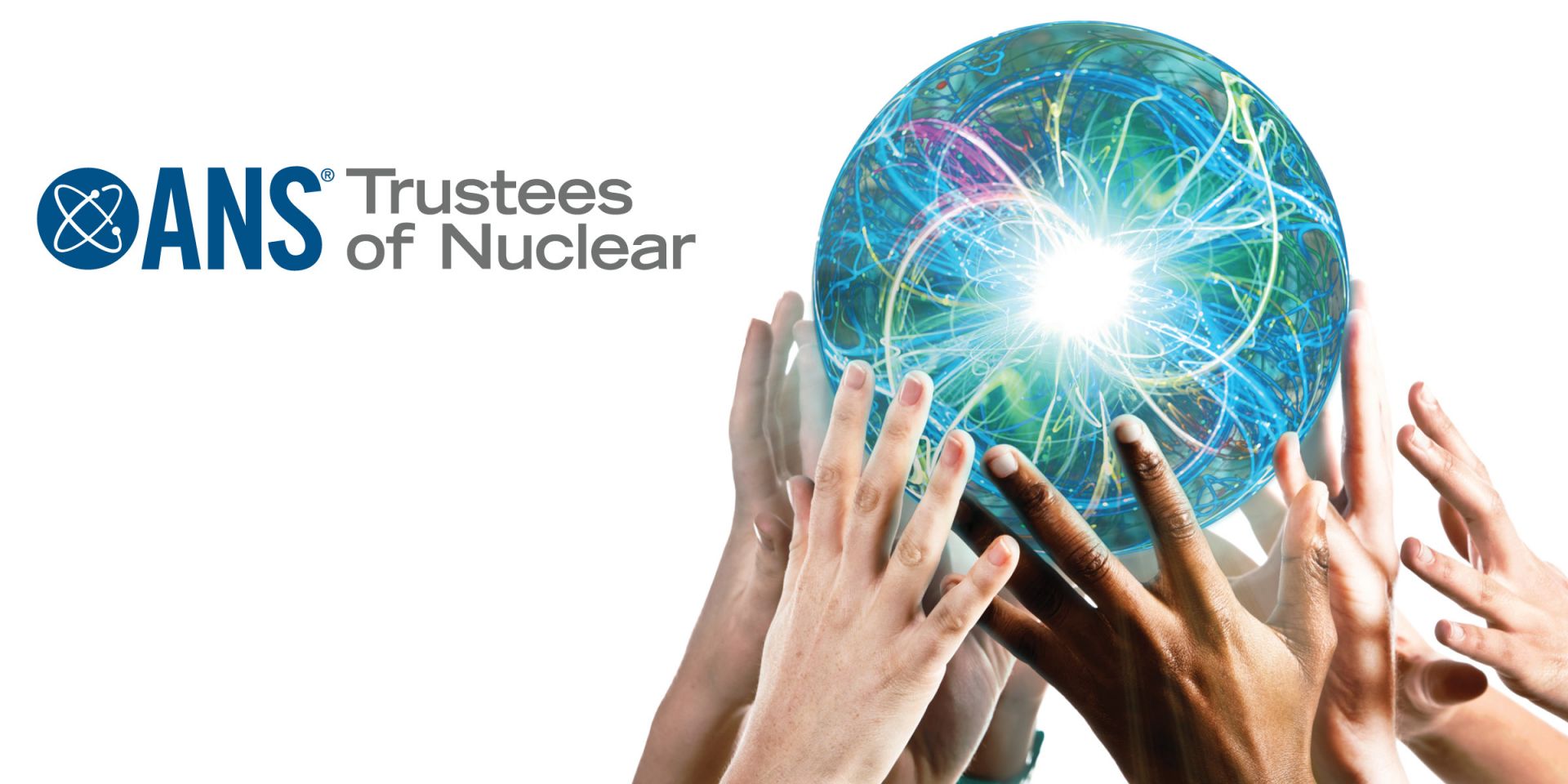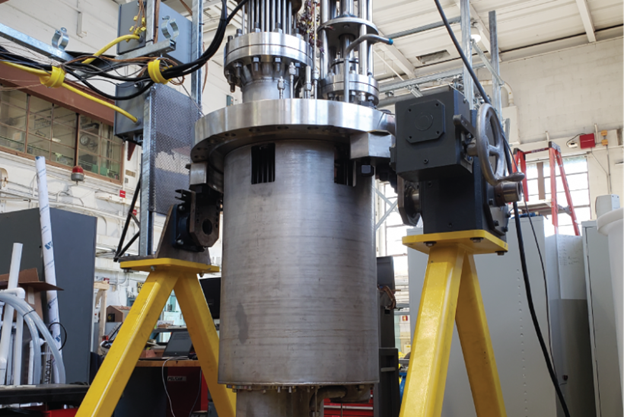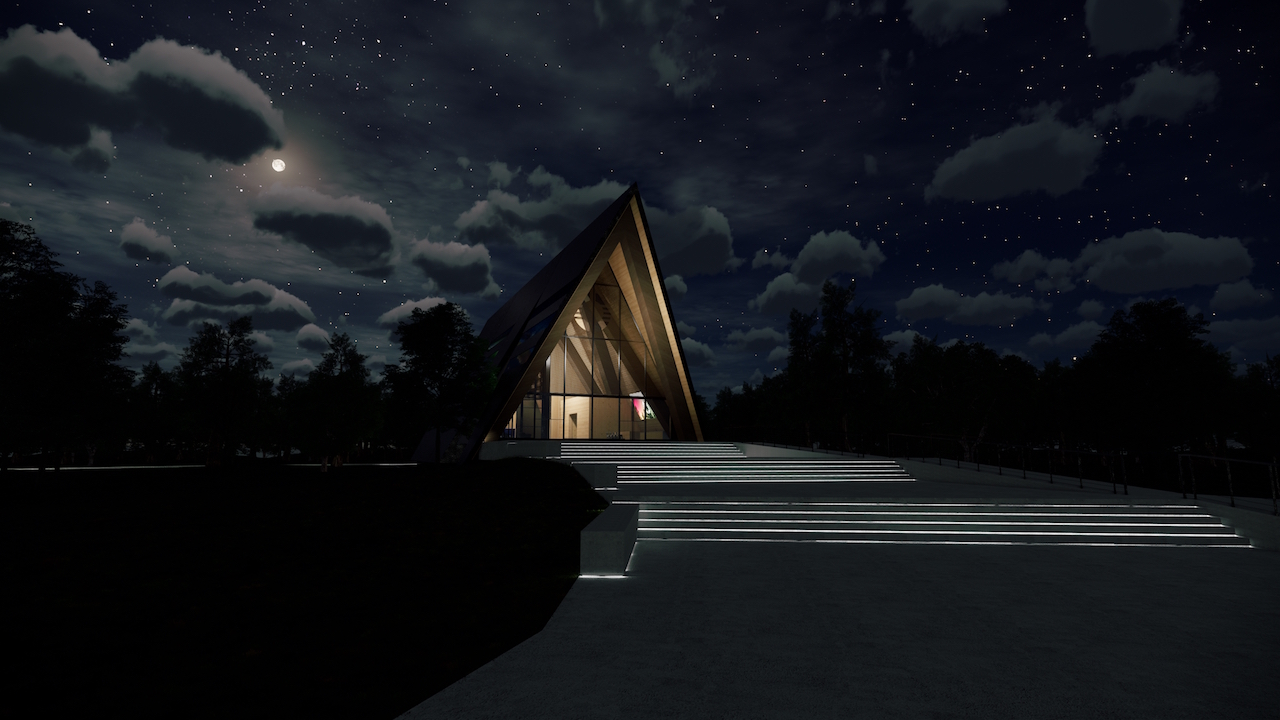Concept art of Oklo's Aurora Powerhouse plant. (Image: Gensler)
The Defense Logistics Agency Energy (DLA Energy) has selected Oklo Inc. as the pending contractor awardee to site a microreactor at Alaska’s Eielson Air Force Base, the advanced reactor firm announced this morning. Eielson is located on 63,195 acres in central Alaska, 26 miles southeast of Fairbanks.
The site in Piketon, Ohio, where Oklo plans to deploy two microreactors under an agreement with Southern Ohio Diversification Initiative. (Photo: Oklo)
Oklo Inc. and Centrus Energy announced a new memorandum of understanding on August 28 to support the deployment of Oklo’s microreactor design, dubbed Aurora, near the Piketon, Ohio, site where Centrus plans to operate a high-assay, low-enriched uranium (HALEU) enrichment demonstration under contract to the Department of Energy by the end of the year.
Craig Piercy (left) discusses “The State of Nuclear” with panelists (sitting left to right) Brad Williams, Todd Abrajano, and John Kotek, as well as Amy Roma and Jackie Siebens, who participated via video feed.
The “The State of Nuclear” panel discussion on June 13 at the 2023 American Nuclear Society Annual Meeting focused on how geopolitical issues are affecting federal, state, and international laws, regulations, and funding regarding nuclear technology. The discussion was chaired by ANS Executive Director/CEO Craig Piercy.
A rendering of Oklo’s Aurora Powerhouse. (Image: Oklo)
Santa Clara, Calif.–based Oklo is planning to build its second and third commercial Aurora Powerhouse nuclear plants in southern Ohio, the company announced yesterday. The advanced reactor developer received a site permit in December 2019 from the Department of Energy to build its initial Aurora facility at Idaho National Laboratory.
According to the announcement, Oklo has signed an agreement with the Southern Ohio Diversification Initiative (SODI), a community-reuse organization, to deploy two 15-MWe plants on land owned by SODI at the Portsmouth site near Piketon, Ohio. The DOE began transferring parcels of the Portsmouth site—home to the Portsmouth Gaseous Diffusion Plant, now undergoing decontamination and decommissioning—to SODI in June 2018 for economic development.
Graphic rendition of the Aurora microreactor. (Image: Oklo Inc.)
Some eight months after the Nuclear Regulatory Commission denied Oklo Inc.’s license application to build and operate its Aurora microreactor in Idaho, the company has returned to the regulatory fray. On Wednesday, Oklo announced that it has submitted to the NRC a licensing project plan (LPP) outlining its proposed engagement to support future Aurora licensing activities.
THETA pictured in Argonne National Laboratory’s METL lab. (Photo: ANL)
The Thermal Hydraulic Experimental Test Article (THETA) at Argonne National Laboratory is now operating and providing data that could support the licensing of liquid-metal fast reactor designs by validating thermal-hydraulic and safety analysis codes. The new equipment has been installed in Argonne’s Mechanisms Engineering Test Loop (METL), and its first experiments are supporting data validation needs of Oklo, Inc., by simulating normal operating conditions as well as protected and unprotected loss-of-flow accidents in a sodium-cooled fast reactor.
A screenshot of the panelists for the ANS spent fuel management webinar.
The Department of Energy’s new consent-based process for siting an interim storage facility for the nation’s spent nuclear fuel faces many challenges, but it could be successful if correctly implemented by the department, according to the panelists of the American Nuclear Society’s webinar “Spent Nuclear Fuel Management: Wasting Away or Chance for Progress?” ANS President Steve Nesbit moderated the webinar, held on March 23.
This image is described by the Alaska Center for Energy and Power as a conceptual layout of a generic small modular reactor or microreactor. (Image: ACEP)
Alaska Gov. Mike Dunleavy (R.) introduced “An act relating to microreactors” (SB 177) in the Alaska state legislature on February 1 that would modify existing state law on nuclear energy by specifying that microreactors are not subject to certain nuclear reactor siting and permitting regulations in Alaska. The bill defines a microreactor as an advanced nuclear fission reactor that would be capable of generating no more than 50 MWe.
An artist's rendition of Oklo’s Aurora powerhouse. (Image: Gensler)
The Nuclear Regulatory Commission has denied “without prejudice” Oklo Power’s application to build and operate its Aurora microreactor in Idaho, the agency announced yesterday. The denial, according to the NRC, is due to the California-based firm’s failure to provide sufficient information on several crucial topics regarding the Aurora design.
Still image from the session. From left to right are Judi Greenwald, Harlan Bowers, Simon Irish, Mike Laufer, and Jake DeWitte.
The 2021 ANS Winter Meeting included an executive session on advanced reactor licensing, featuring the leaders of four of the top advanced reactor companies: Mike Laufer, chief executive officer of Kairos Power; Jake DeWitte, CEO of Oklo; Simon Irish, CEO of Terrestrial Energy; and Harlan Bowers, president of X-energy.
